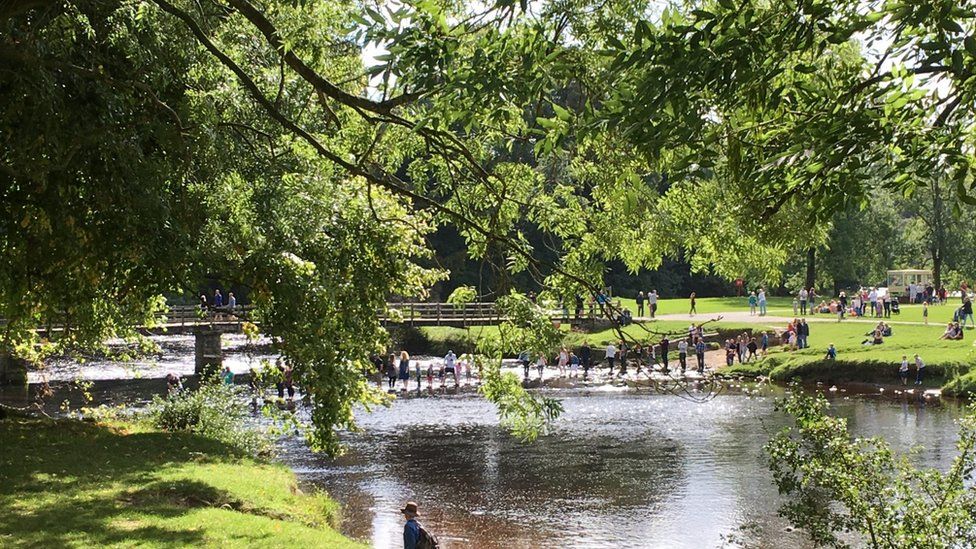Green spaces worth £2.2bn to public health in England
- Published

Outdoor exercise delivers an estimated £2.2bn of health benefits to adults in England each year, a study suggests.
Scientists calculated that more than eight million people each week took at least 30 minutes of "green exercise".
They hope the results highlight how encouraging more people to use parks will help reverse the trend of rising obesity levels across the UK.
"What we look at here is something that can be converted relatively simply into monetary values," explained lead author Mathew White from the European Centre for Environment and Human Health at the University of Exeter.
Dr White told BBC News that since the 1970s there had been studies showing the link between physical activity and health benefits.
"There are very clear ideas about how much physical activity needs to be done in order to benefit health. What we have done here is to focus on those people who use the natural environment for enough activity a week (5x30 minutes) in order to justify gains in their health," he added.
"First of all we looked at the total number of people that went to the natural environment in England each year. Then we looked at the total number of people who engage in what we call an active visit (cycling, walking, running etc).
"We then looked at how often they did that, and if they did it enough times to benefit their health which we converted into something called Quality Adjusted Life Years, which could then be converted into monetary estimates."
Green goddess
The study estimated that it was worth an average of £2.2bn each year. Dr White said that there had been relatively few attempts to place a monetary estimate on the societal benefits from green exercise.
But he cautioned: "Just to make it clear, we are not saying this is the only way. There were a lot of people who achieve the physical activity guidelines who never went to nature, so we are not saying that it is the only way to do it but we are saying that a very large number of people who do achieve the guidelines do use nature."
Dr White explained that the study only focused on those people who used natural environments to exercise and it did not look at people who used gyms or health centres for physical activities.
Explaining the study's findings, he said the data revealed a "socio-economic gradient".
"It tends to be people from higher socio-economic groups who were more active in the environment, more so than people from lower socio-economic groups," he observed.
"But crucially, among the two groups, once they were in the environment they do the same level of activity.
"So we think encouraging people from these lower groups to go to these essentially free environments will mean that once they are there then they will do as much physical activity as higher socio-economic groups. So it can help reduce inequalities in health."
Run, forest, run
The team suggested that the findings presented a clear indication of the potential implications of policymakers tackling the upward trend in UK obesity levels through the use and availability of "essentially free-at-the-point-of-access environments".
Dr White added: "We already know that many people with weight issues do not like going to the gym because they feel socially embarrassed, whereas a walk in the park does not have that stigma.
"We think it really takes the pressure of these groups in particular. The cost to the health service of obesity is just enormous and is growing every year. If we can encourage more people to do these simple activities outdoors we can make significant inroads into that trend."
Follow Mark on Twitter.
- Published9 December 2014
- Published12 January 2014
- Published6 November 2013
- Published19 December 2012
- Published10 February 2012